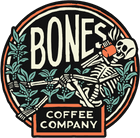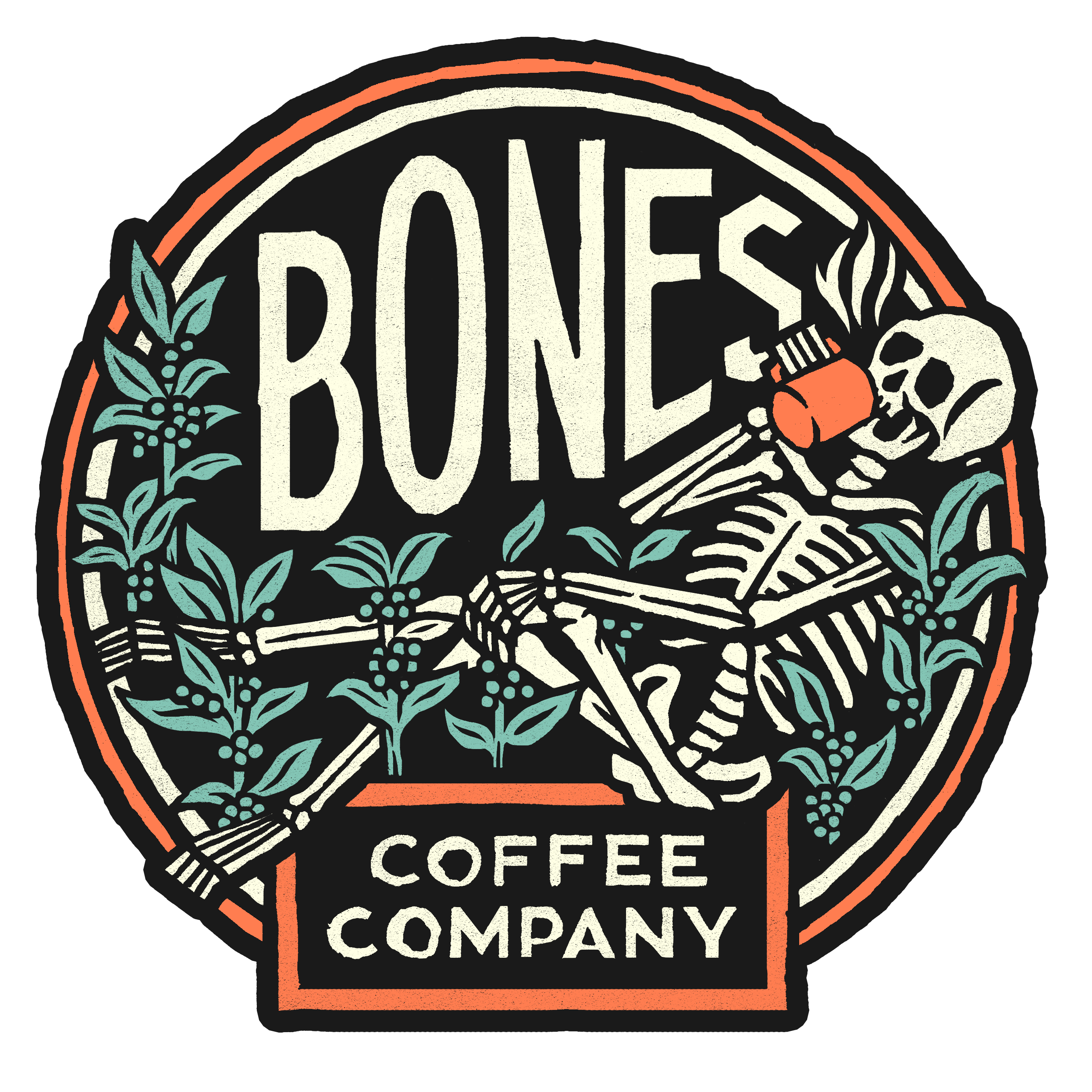 | ||
 |
Cholesterol, a waxy substance found in your blood, plays a crucial role in building healthy cells. However, high levels of cholesterol can increase the risk of heart disease.
Recent studies have indicated a complex relationship between coffee consumption and cholesterol levels.
This comprehensive guide aims to delve into the intricate relationship between coffee and cholesterol, exploring the impact of coffee consumption on cholesterol levels in both men and women, the role of different types of coffee and their components, and providing guidelines for coffee consumption for individuals with high cholesterol.
Does Coffee Raise Cholesterol Levels in Both Men and Women?
Coffee can indeed raise cholesterol levels in both men and women.
The primary component responsible for this effect is a group of compounds known as diterpenes, specifically cafestol and kahweol. These compounds have been found to interfere with the body’s regulation of cholesterol, leading to increased levels in the bloodstream.
Here’s a comparison of the cafestol and kahweol content in different types of coffee:
Coffee Type | Cafestol (mg/cup) | Kahweol (mg/cup) |
Decaffeinated coffee grounds | 485 mg/100 g | 411 mg/100 g |
Regular coffee grounds | 486 mg/100 g | 469 mg/100 g |
Instant | Negligible | Negligible |
Drip-filtered | Negligible | Negligible |
In a study published by the National Library of Medicine, researchers found that consuming more than five cups of coffee per day could increase cholesterol levels.
However, it’s important to note that the method of coffee preparation can significantly influence the number of diterpenes in the final brew.
Unfiltered coffee, such as French press or Turkish coffee, contains higher levels of diterpenes than filtered coffee. Therefore, individuals who regularly consume unfiltered coffee may experience a more significant increase in cholesterol levels. Consider switching to filtered coffee options like Bones Coffee’s High Voltage blend.
Additionally, individual genetic factors can also play a role in how coffee affects cholesterol levels.
Some people may be more sensitive to the cholesterol-raising effects of coffee due to their genetic makeup. This is an area of ongoing research, and more studies are needed to fully understand the interplay between genetics, coffee consumption, and cholesterol levels.
NUTRITIONAL INFORMATION FOR AN 8OZ CUP OF BONES COFFEE | |
Calories | 2 |
Total fat | 0g |
Cholesterol | 0mg |
Sodium | 0mg |
Total carbohydrates | 0g |
Dietary fiber | 0g |
Sugars | 0g |
Protein | 0g |
How Much Coffee Intake Is Considered Safe for Maintaining Healthy Cholesterol Levels?
A study published by the Harvard School of Public Health suggests that moderate coffee consumption, defined as 3-5 cups per day, leads to reduced risk of numerous chronic diseases.
Therefore, such amounts are generally safe for most healthy adults and do not significantly affect cholesterol levels. However, this is a broad guideline and individual responses can vary.
Below are several factors that can influence how coffee affects cholesterol levels.
Individual Health Status
People with existing high cholesterol or other cardiovascular conditions may be more sensitive to the effects of coffee on cholesterol levels. It’s crucial for these individuals to consult with a healthcare provider to determine a safe amount of coffee intake.
Genetic Predisposition
Some individuals may have a genetic predisposition that makes them more susceptible to the cholesterol-raising effects of coffee. Genetic testing can help identify these individuals.
Lifestyle
Other lifestyle factors such as diet, physical activity, smoking, and alcohol consumption can interact with coffee intake to influence cholesterol levels. A balanced diet and regular exercise can help mitigate the potential cholesterol-raising effects of coffee.
Type of Coffee
The method of coffee preparation can also affect its impact on cholesterol. Unfiltered coffee, such as French press or espresso, contains higher amounts of cafestol, a substance that can increase cholesterol levels.
On the other hand, filtered coffee, such as Bones Coffee’s Holy Cannoli, has lower cafestol levels and is less likely to affect cholesterol.
It’s important to note that while moderate coffee consumption may not significantly affect cholesterol levels, excessive intake can have other health implications, including increased heart rate, insomnia, and digestive problems.
Therefore, even for individuals without high cholesterol, moderation is key when it comes to coffee consumption.
How Does the Type of Coffee (Filtered or Unfiltered) Affect Cholesterol Levels?
Unfiltered coffee, which includes espresso, Turkish coffee, Scandinavian boiled coffee, and French press coffee, contains higher amounts of cafestol and kahweol, two diterpenes known to raise cholesterol levels.
These compounds are found in the oily part of coffee and are capable of activating a specific receptor in an intestinal pathway critical to cholesterol regulation.
On the other hand, filtered coffee such as Bones Coffee’s Highland Grog and Sinn-O-Bun, which is brewed through a paper filter, has significantly lower levels of cafestol and kahweol.
The paper filter effectively traps these diterpenes, preventing them from entering the final brew. As a result, filtered coffee has a much lesser impact on cholesterol levels compared to its unfiltered counterpart.
While filtered coffee is generally a better choice for those concerned about cholesterol, it’s recommended to consider these factors and consult with a healthcare provider for personalized advice.
What Components in Coffee Contribute to Increased Cholesterol Levels?
The primary culprits are two types of diterpenes: cafestol and kahweol. These compounds are found in the oily part of coffee, and they have been shown to directly increase the cholesterol levels in the body.
Cafestol
This is a potent cholesterol-elevating compound found in coffee. It works by suppressing a liver receptor that regulates cholesterol levels, leading to an increase in the body’s cholesterol production.
Cafestol is found in higher concentrations in unfiltered coffee, such as French press or Turkish coffee.
Below is a table showing the amount of Cafestol in different coffee types.
TYPE OF COFFEE | CAFESTOL (mg. mL -100) |
Scandinavian boiled | 0.5 - 8.0 |
French press | 0.3 - 6.7 |
Turkish or Greek | 1.5 - 3.7 |
Espresso | 0.1 - 1.9 |
Paper filtered | 0.0 - 0.1 |
Kahweol
Similar to cafestol, kahweol is another diterpene found in coffee. While it is less potent than cafestol, it also contributes to increased cholesterol levels. Kahweol is also found in higher amounts in unfiltered coffee.
It’s important to note that the method of coffee preparation can significantly affect the levels of these compounds.
For instance, paper filters used in drip coffee makers can effectively trap cafestol and kahweol, reducing their levels in the final brew.
On the other hand, methods that do not use a paper filter, such as French press or espresso, allow more of these compounds to remain in the coffee.
Additionally, the roasting process can also influence the levels of these compounds.
Darker roasts such as Army of Dark Chocolate, typically have lower levels of cafestol and kahweol compared to lighter roasts. However, the difference is relatively small and may not significantly impact the overall cholesterol-raising effect of coffee.
Lastly, it’s worth mentioning that decaffeinated coffee also contains these diterpenes.
Therefore, switching to decaf may not necessarily lower the cholesterol-raising effect of coffee, especially if the coffee is unfiltered.
Does Decaffeinated Coffee Have the Same Effect on Cholesterol Levels as Regular Coffee?
The primary difference between decaffeinated and regular coffee lies in the presence of two specific compounds: cafestol and kahweol.
These diterpenes are found in the oily part of coffee and have been shown to increase the levels of low-density lipoprotein (LDL), often referred to as ‘bad cholesterol’, in the body.
In the process of decaffeination, coffee beans undergo treatment that removes the majority of the caffeine content. However, this process also significantly reduces the levels of cafestol and kahweol. As a result, decaffeinated coffee has a lesser impact on cholesterol levels compared to regular coffee.
Here are some key points to consider:
Cafestol and Kahweol
These compounds are present in higher amounts in regular coffee compared to decaffeinated coffee. They are known to increase LDL cholesterol levels.
Decaffeination Process
The process of decaffeination not only removes caffeine but also significantly reduces the levels of cafestol and kahweol. This results in decaffeinated coffee having a lesser impact on cholesterol levels.
Filtered vs Unfiltered Coffee
The method of brewing can also affect the levels of cafestol and kahweol in the coffee. Filtered coffee, both regular and decaffeinated, contains lower levels of these compounds compared to unfiltered coffee.
Individual Variations
The impact of decaffeinated coffee on cholesterol levels can vary from person to person, depending on factors such as genetics, overall diet, and lifestyle.
While decaffeinated coffee does contain compounds that can affect cholesterol levels, the impact is significantly less compared to regular coffee due to the decaffeination process.
“A moderate amount of coffee, particularly filtered coffee, is safe for both heart health and cholesterol levels. Just be mindful of how you are flavoring your coffee and choose lower-fat and lower-sugar ways to enjoy your cup.” ~ Melissa Prest, DCN, RDN, the foundation dietitian for the National Kidney Foundation of Illinois
Are There Any Differences in How Coffee Affects Cholesterol Levels in Men Versus Women?
The impact of coffee on cholesterol levels can vary between men and women due to a variety of factors, including hormonal differences, body composition, and metabolic rates.
Hormonal Differences
Hormones play a significant role in how our bodies metabolize and process different substances, including caffeine.
For instance, estrogen, a hormone more prevalent in women, can influence how the body processes caffeine.
According to a study by the National Institutes of Health, moderate caffeine intake is linked to higher estrogen levels in Asian women but lower levels in white women.
Body Composition
Generally, women tend to have a higher percentage of body fat compared to men. This difference in body composition can influence how the body metabolizes caffeine.
Fat cells metabolize substances differently than muscle cells, which could potentially lead to differences in how coffee affects cholesterol levels in men and women.
Metabolic Rates
Men typically have a higher metabolic rate than women, which means they may process caffeine more quickly. This could potentially result in a less pronounced impact on cholesterol levels in men compared to women.
Coffee Consumption Habits
Men and women may also have different coffee consumption habits.
For example, men may consume more coffee on average than women, which could lead to higher cholesterol levels.
Additionally, the type of coffee consumed (e.g., black coffee, coffee with cream and sugar, espresso, etc.) can also influence cholesterol levels.
What Are the Potential Risks of High Cholesterol Levels Due to Excessive Coffee Consumption?
Here are some potential risks associated with high cholesterol levels due to excessive coffee consumption.
Increased Risk of Heart Disease
High cholesterol levels can lead to the buildup of plaques in the arteries, a condition known as atherosclerosis. This can increase the risk of heart disease.
A study by the National Library of Medicine shows that heavy coffee drinkers, particularly those who consume unfiltered coffee, may have higher levels of LDL cholesterol, which can contribute to atherosclerosis.
Stroke
High cholesterol levels can also increase the risk of stroke. The plaques formed due to high cholesterol can rupture and form a clot, blocking blood flow to the brain.
A study on Coffee Consumption and Stroke Risk suggests that excessive coffee consumption can increase cholesterol levels, potentially increasing stroke risk.
Peripheral Artery Disease (PAD)
PAD is a condition where the peripheral arteries, usually in the legs, become narrowed due to plaque buildup. According to Saint Luke’s high cholesterol levels are a risk factor for PAD.
Type 2 Diabetes
While coffee has been associated with a reduced risk of type 2 diabetes, according to a center published by the National Center of Biotechnology Information, this benefit may be diminished in those who consume large amounts of coffee. This could be due to the potential impact of excessive coffee consumption on cholesterol levels and insulin sensitivity.
It’s important to note that these risks are associated with excessive coffee consumption.
Moderate coffee consumption, particularly filtered coffee, may not have the same impact on cholesterol levels.
“Moderate coffee intake—about 2–5 cups a day—is linked to a lower likelihood of type 2 diabetes, heart disease, liver and endometrial cancers, Parkinson’s disease, and depression.” ~ Frank B. Hu, Fredrick J. Stare Professor of Nutrition and Epidemiology, Harvard T.H. Chan School of Public Health
What Are the Recommended Coffee Consumption Guidelines for Individuals With High Cholesterol?
The recommended coffee consumption guidelines for individuals with high cholesterol are largely dependent on several factors, including the individual’s overall health, lifestyle, and the type of coffee consumed.
However, there are some general guidelines that can be followed.
Choose Filtered Coffee
Unfiltered coffee, such as French press or espresso, contains higher amounts of cafestol and kahweol, two compounds known to increase LDL (bad) cholesterol levels. Opting for Bones filtered coffee can significantly reduce your intake of these compounds.
Consider Decaffeinated Coffee
Some studies suggest that decaffeinated coffee may have a less significant impact on cholesterol levels compared to regular coffee. However, more research is needed in this area to confirm these findings.
Monitor Your Cholesterol Levels
Regular monitoring of cholesterol levels is important for individuals with high cholesterol who consume coffee. This can help to identify any potential changes in cholesterol levels that may be linked to coffee consumption.
Consult a Healthcare Professional
It’s always a good idea to consult with a healthcare professional or a dietitian before making any significant changes to your diet, including coffee consumption. They can provide personalized advice based on your specific health needs and conditions.
Limit Coffee Consumption
Moderation is key when it comes to coffee consumption. The National Center of Biotechnology Information suggests limiting coffee intake to no more than 2-3 cups per day, as excessive consumption can lead to increased cholesterol levels.
Maintain a Balanced Diet
Consuming a diet rich in fruits, vegetables, whole grains, and lean proteins can help maintain healthy cholesterol levels. These foods are high in fiber and low in saturated fats, which can help counteract the cholesterol-raising effects of coffee.
Regular Exercise
Regular physical activity can help raise HDL (good) cholesterol levels while lowering LDL cholesterol. Aim for at least 30 minutes of moderate-intensity exercise five days a week.
Avoid Smoking and Excessive Alcohol
Both smoking and excessive alcohol consumption can raise cholesterol levels and exacerbate the effects of coffee on cholesterol. It’s advisable to quit smoking and limit alcohol consumption.
Take Control of Your Cholesterol With Smart Coffee Choices
The relationship between coffee and cholesterol is multifaceted and influenced by various factors.
Coffee, particularly unfiltered types, can raise cholesterol levels due to certain components like cafestol and kahweol. However, the impact varies between individuals and is influenced by factors such as gender and overall lifestyle.
Decaffeinated coffee appears to have a lesser effect on cholesterol levels, making it a potential alternative for those with high cholesterol. Mitigation strategies include moderating coffee intake, opting for filtered coffee, and maintaining a balanced diet and active lifestyle.
It’s crucial for individuals, especially those with high cholesterol, to be mindful of their coffee consumption and consult with healthcare professionals for personalized advice. Further research is needed to fully understand the nuances of coffee’s impact on cholesterol and to develop more comprehensive guidelines.
References
- Chang, H.-C. et al. (2020) Changes in high-density lipoprotein cholesterol levels in relation to coffee consumption among Taiwanese adults, Journal of multidisciplinary healthcare. Available at: https://www.ncbi.nlm.nih.gov/pmc/articles/PMC7646403/#:~:text=In%20this%20study%2C%20we%20observed%20that%20coffee%20consumption%20of%20%E2%89%A55%20cups%20per%20week%20was%20greatly%20associated%20with%20higher%20levels%20of%20HDL%2DC%20among%20Taiwanese%20adults%2030%20years%20and%20older.%20However%2C%20there%20was%20no%20association%20between%20HDL%2DC%20and%20coffee%20consumption%20of%201%E2%80%934%20cups%20per%20week. (Accessed: 21 May 2024).
- Coffee (2024) The Nutrition Source. Available at: https://www.hsph.harvard.edu/nutritionsource/food-features/coffee/#:~:text=The%20bottom%20line%3A%20A%20large%20body%20of%20evidence%20suggests%20that%20consumption%20of%20caffeinated%20coffee%20does%20not%20increase%20the%20risk%20of%20cardiovascular%20diseases%20and%20cancers.%20In%20fact%2C%20consumption%20of%203%20to%205%20standard%20cups%20of%20coffee%20daily%20has%20been%20consistently%20associated%20with%20a%20reduced%20risk%20of%20several%20chronic%20diseases. (Accessed: 21 May 2024).
- Institute of Medicine (US) Committee on Military Nutrition Research (1970) Pharmacology of caffeine, Caffeine for the Sustainment of Mental Task Performance: Formulations for Military Operations. Available at: https://www.ncbi.nlm.nih.gov/books/NBK223808/#:~:text=Decreased%20paraxanthine%20or%20caffeine%20metabolic,et%20al.%2C%201999). (Accessed: 21 May 2024).
- Senftinger, J. et al. (2023) Coffee consumption and associations with blood pressure, LDL-cholesterol and echocardiographic measures in the general population, Scientific reports. Available at: https://www.ncbi.nlm.nih.gov/pmc/articles/PMC10033706/ (Accessed: 21 May 2024).
- Williams, P.T. et al. (1985) Coffee intake and elevated cholesterol and apolipoprotein B levels in men, JAMA. Available at: https://www.ncbi.nlm.nih.gov/pmc/articles/PMC2864577/#:~:text=Our%20analyses%20suggest%20that%20coffee,sedentary%2C%20middle%2Daged%20men (Accessed: 21 May 2024).
- Kolb, H., Martin, S. and Kempf, K. (2021) Coffee and lower risk of type 2 diabetes: Arguments for a causal relationship, Nutrients. Available at: https://www.ncbi.nlm.nih.gov/pmc/articles/PMC8066601/ (Accessed: 21 May 2024).
- High cholesterol and peripheral arterial disease (PAD) (no date) Saint Luke’s Health System. Available at: https://www.saintlukeskc.org/health-library/high-cholesterol-and-peripheral-arterial-disease-pad (Accessed: 21 May 2024).
- J;, S.C.H.X. Coffee consumption and stroke risk: Evidence from a systematic review and meta-analysis of more than 2.4 million men and women, Journal of stroke and cerebrovascular diseases : the official journal of National Stroke Association. Available at: https://pubmed.ncbi.nlm.nih.gov/33188952/#:~:text=The%20strongest%20association%20for%20stroke%20(21%25%20lower%20risk)%20was%20found%20for%20coffee%20consumption%20of%203%2D4%20cups/day%20and%20no%20further%20reduction%20in%20stroke%20risk%20was%20observed%20with%20increasing%20levels%20of%20coffee%20consumption%20beyond%20this%20amount (Accessed: 21 May 2024).








